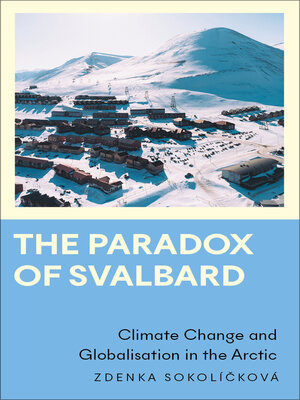The Paradox of Svalbard
ebook ∣ Climate Change and Globalisation in the Arctic · Anthropology, Culture and Society
By Zdenka Sokolíčková

Sign up to save your library
With an OverDrive account, you can save your favorite libraries for at-a-glance information about availability. Find out more about OverDrive accounts.
Find this title in Libby, the library reading app by OverDrive.



Search for a digital library with this title
Title found at these libraries:
| Library Name | Distance |
|---|---|
| Loading... |
'Engaging, rich and nuanced, this book exposes the deep dilemmas facing this Arctic archipelago. A must for anyone with an interest in the challenges of a melting world. Ethnography at its best' Marianne E. Lien, Professor, University of Oslo
'Rich and deeply textured ... Zdenka Sokolíčková demonstrates how the logic of extraction intersects awkwardly with community, environment, geopolitics and sustainability' Klaus Dodds, Professor, Royal Holloway University of London
'Lucidly captures the dilemmas of maintaining community in the world's northernmost settlement, where climate change is particularly evident. Highly recommended!' Cecilie Vindal Ødegaard, Professor, University of Bergen
Longyearbyen in the Arctic is the world's northernmost settlement. Here, climate change is happening fast. It is clearly sensed by the locals; with higher temperatures, more rain and permafrost thaw. At the same time, the town is shifting from state-controlled coal production to tourism, research and development. It is rapidly globalising, with numerous languages spoken, and with cruise ships sounding their horns in the harbour while planes land and take off.
A small town of 2,400 inhabitants on the Norwegian archipelago of Svalbard, Longyearbyen provides a unique view into the unmistakable relationship between global capitalism and climate change. The Paradox of Svalbard looks at local and global trends to access a deep understanding of the effects of tourism, immigration and labour on the trajectory of the climate crisis, and what can be done to reverse it.
Zdenka Sokolíčková is a researcher at the University of Hradec Králové, Czechia, and the University of Groningen in the Netherlands. Her research in Longyearbyen was hosted by the Department of Social Anthropology at the University of Oslo, Norway.







